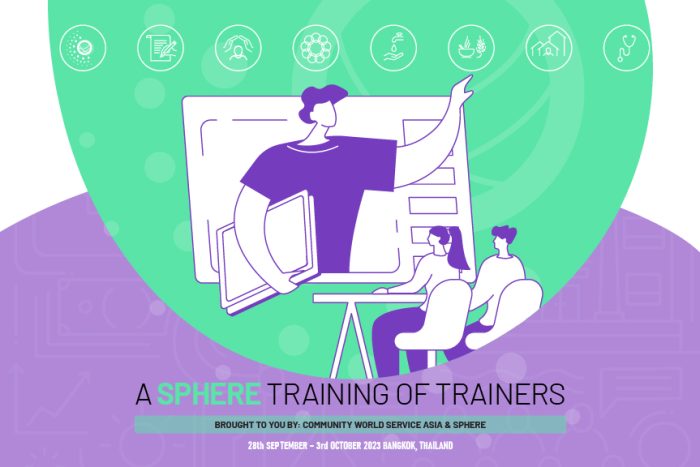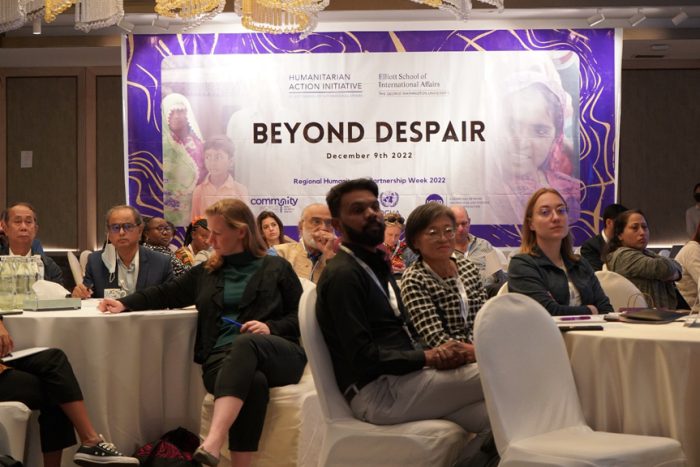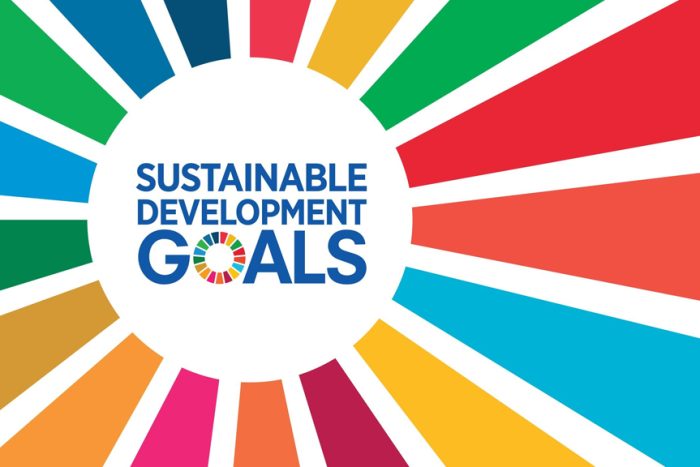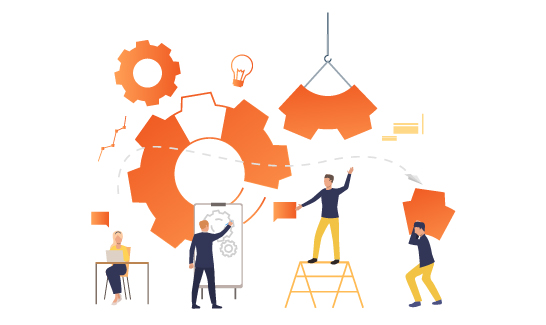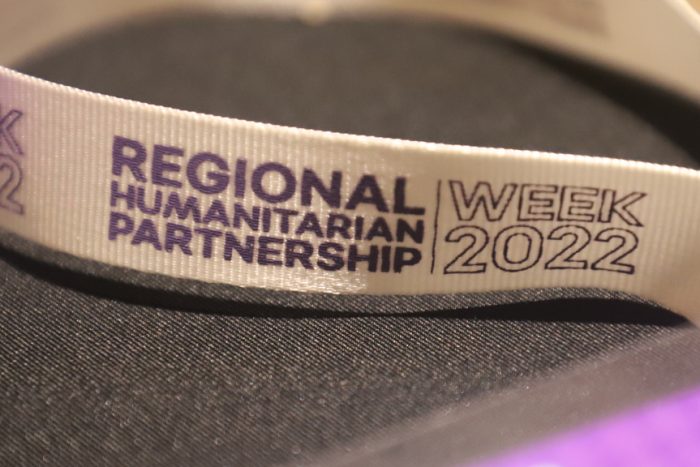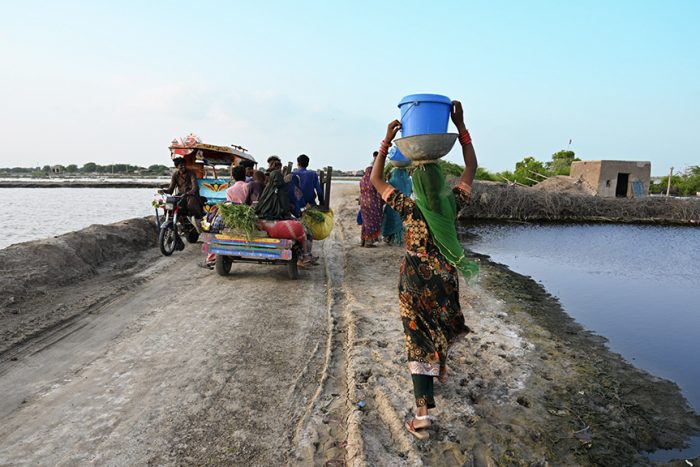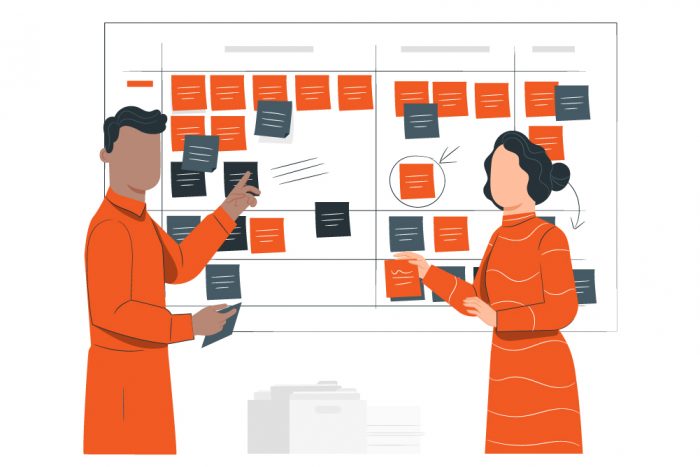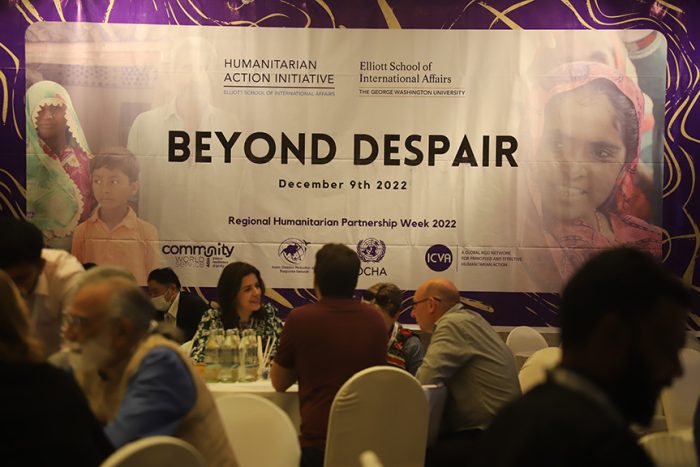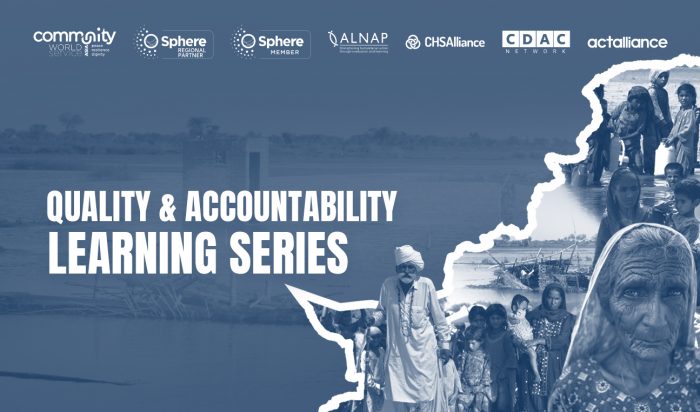Training on: Leading in Complexity and Ambiguity
When: 19th- 21st June 2023 (arrival at venue on 18th June 2023 before 7 pm)
Where: Murree, Punjab
Language: Urdu and English
Interested Applicants: CLICK HERE TO REGISTER
Last Date to Apply: 25th May 2023 (incomplete applications will not be entertained)
Leading in Complexity and Ambiguity training will be directed at the senior staff of NGOs. It will use the ‘Authentic Leader’ model and provide opportunities to the participants to reflect on their leadership style and its relevance and effectiveness. It will give them knowledge on leadership competencies based on research with contemporary leaders. They will also have opportunities for practicing and sharpening their personal leadership skills and competencies. Methodology of this training includes self-reflection and analysis, working with buddies, exercises. These will be interspersed with lectures by the external trainer and experience sharing by prominent leaders from the development and corporate sectors. Coaching and mentoring support will be provided to 30% of participant organisations to help them apply their learning.
Training Objectives
By the end of this workshop, you will be able to:
- Understand the different leadership styles and competencies.
- Reflect on their leadership style based on their self-assessment and others’ perceptions/feedback.
- Sharpen/strengthen their leadership competencies.
- Develop action plans for peer support and coaching/mentoring.
Methodology
The approach used in this training is the ‘Blended Learning’ approach developed by CWSA’s Capacity Enhancement Project (CEP) in its previous phases. The approach is participatory and needs-based in nature. It consists of selection of participants from diverse organisations at different levels, content and methodology designed with and based on the needs of the training participants, use of experienced and knowledgeable trainers, flexible content and methodology during the training, development of action plans and follow up refreshers and coaching and mentoring support.
Number of Participants
- 18-22 participants will be selected for the training. Female staff and those with disabilities and from ethnic/religious minorities are encouraged to apply. Preference will be given to participants from organisations based in underserved areas.
Selection Criteria
- No previous exposure/participation in leadership training
- Mid or senior level manager in a civil society organisation, preferably field staff of large CSOs or CSOs with main office in small towns and cities
- Participants from women led organisations, those of persons with disabilities, religious/ethnic minorities will be preferred
- Commitment to apply learning in their work, including dissemination of learning within their organisation.
Fee Details
- Training fee for each participant is PKR 15,000. Fee concessions and scholarships are available for participants belonging to marginalised groups and NGOs with limited funding.
- No TA/DA will be given to participants and travel expenses will be incurred by participants themselves.
Trainer
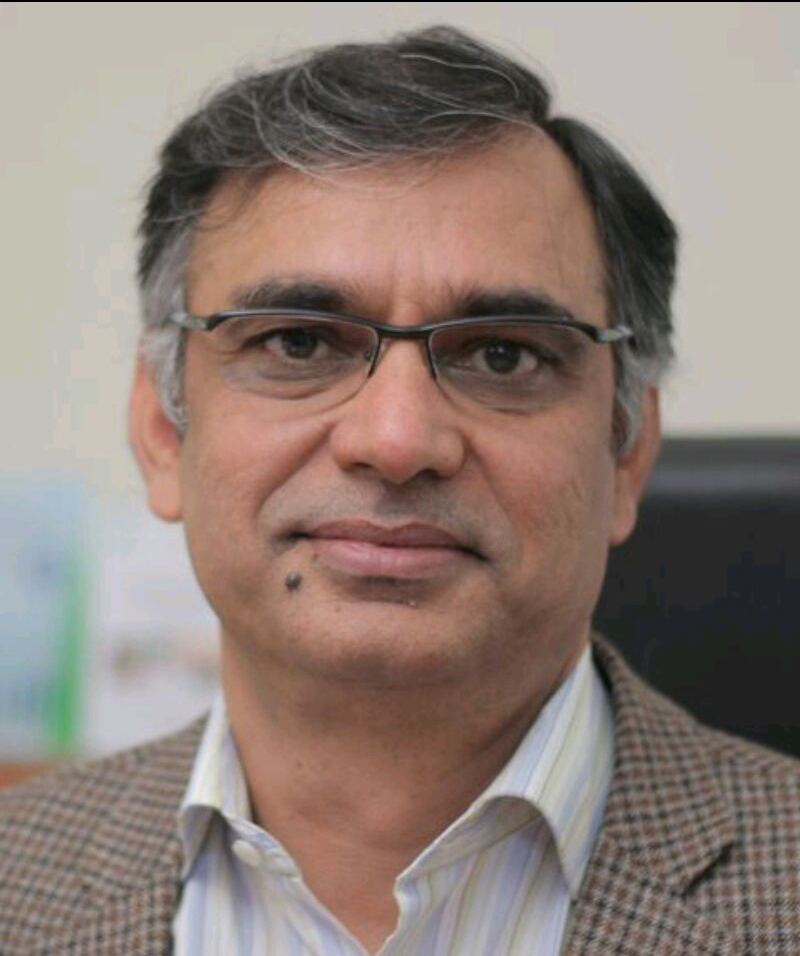
Mr. Arif Jabbar is the Country Director of Water Aid Pakistan. Mr. Arif is a leadership Coach and is currently coaching a number of staff members in public and private institutions. Mr. Khan holds an M.Phil. degree in Public Policy from the National Defence University Islamabad and was awarded with the President’s Gold Medal. He also holds a Master’s Degree in Engineering (Water Resource Development) from the Asian Institute of Technology, Bangkok. Mr. Arif is an Eisenhower Fellow wherein he studied the “Americans with Disabilities Act” during his Fellowship. He was the Chief of Party of USAID Ambassador’s Fund Grant Programme and has served Oxfam International as the Global Head of Humanitarian Campaigns, Regional Humanitarian Coordinator for Southern Africa and East Asia, Country Director in Pakistan and South Africa, in addition to holding other portfolios. He also served as the Country Director, Pakistan with Voluntary Service Overseas –VSO, Regional Grants Manager, Asia with Child fund International, Director Programme Operations, Sri Lanka with Save the Children and Director Operations, Market Development Facility with The Palladium Group.
Community World Service Asia (CWSA) is a humanitarian and development organization, registered in Pakistan, head-quartered in Karachi and implementing initiatives throughout Asia. CWSA is member of the Core Humanitarian Standard (CHS) Alliance, a member of Sphere and their regional partner in Asia and also manages the ADRRN Quality & Accountability Hub in Asia.
Beyond Despair
Community World Service Asia (CWSA)and the Humanitarian Action Initiative (HAI) of the Elliott School of International affairs, George Washington University organised a half-day conference at the start of 2022 Regional Humanitarian Partnership week, hosted by the United Nations Office for the Coordination of Humanitarian Affairs (UNOCHA), the International Council for Voluntary Agencies (ICVA) and CWSA. Marcus Werne (Regional director of UNOCHA), Takeshi Komino (Secretary General, ADRRN) and Keya Choudhary (Regional Representative, ICVA) opened the conference by outlining the state of humanitarian sector in the region and the challenges ahead, and provided a summary of the schedule of events.
CWSA and HAI intended to flip the script of many gatherings: rather than bemoan the obstacles, which are well known at this point, they wanted to hear about how they manage to act boldly and creatively to stand and deliver despite the innumerable barriers. The conference had three parts: an overview of the barriers; the strategies developed to overcome these barriers; and how these strategies can help chart a more productive path in the future.
Palwashay Arbab, CWSA’s head of communications, opened the proceedings, followed by Dr. Maryam Zarnegar Deloffre, Associate Professor of International Affairs and Director of HAI. Maryam summarised the intent of the conference in the following way: “Success is not downplaying the challenges, but despite the challenges being able to provide assistance. We need to reform the system, but we also need to focus on what’s working.”
Training on: Sustainable Development Goals and the Role of Leadership
When: 13th-15th March 2023
Where: Peshawar, KPK
Language: Urdu and English
Interested Applicants: CLICK HERE TO REGISTER
Training Objectives:
By the end of this workshop, you will be able to:
- Re-conceptualize core notion of sustainable development
- Adopt innovative approaches to sustainable development leadership.
- Use your leadership skills to advance sustainable development.
- Tackle the complexities and synergies of sustainable development across environmental, social, and economic spheres.
- Work more with partners from a variety of sectors and beyond institutional boundaries.
Background
At the UN Sustainable Development Summit on 25 September 2015, more than 150 world leaders adopted the 2030 Agenda for Sustainable Development, including the Sustainable Development Goals (SDGs). The 17 Sustainable Development Goals aim to end poverty, hunger and inequality, take action on climate change and the environment, improve access to health and education, build strong institutions and partnerships, and more. The performance of any country, in seeking to achieve the SDGs, to a large extent depends on its leadership. Achieving the SDGs will require the concerted efforts of governments, the business sector, civil society, and individual citizens.
The world needs effective leadership for sustainable development and this leadership requires an inner process, in which a leader must first be grounded in an understanding of self and a relational view of the world, in order to effectively work with others to make change. This training will be focused on the leadership aspect of sustainable development.
Number of Participants
- A maximum of 20 participants will be selected for the training. Women and staff belonging to ethnic/religious minorities are encouraged to apply. Preference will be given to participants representing organizations working in remote and under-served areas.
Selection Criteria
- Participant’s organization should be registered with its respective provincial Social Welfare Department
- Participant is in a mid/senior position for leadership role working in a local/national NGO
- Participants from women led organizations, different abled persons, minority groups will be given preference
- Commitment to apply learning in their work, including dissemination of learning within their organization
Fee Details
- Training fee for each participant is PKR 10,000. Fee concessions and scholarships are available for participants belonging marginalised groups and NGOs with limited funding.
- No TA/DA will be given to participants and travel expenses will be incurred by participants themselves.
Facilitator/Lead Trainer:
Mr. Sohail Muhammad Ali is a high-performing research and capacity-building specialist and trainer with
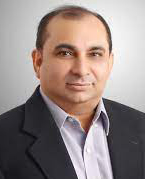
expertise in research, training and development to maximize human resource outputs in social development and education sectors. He is a respected & proven advisor to non-government organizations and has played an active role in providing guidance on research and development functions to promote and innovative solutions to social developmental challenges. He is an influential and inspirational leader with excellent human capital development skills.
Mr. Sohail has the experience of working in South Asia, Africa and Europe. He has conducted professional development workshops and capacity building sessions. He has served as a national and international consultant for organizations including Leonard Cheshire (LC) UK, World Bank, USAID, Care International, UNICEF, Aga Khan Rural Support Program (AKRSP), Academy for Educational Development (AED), Aga Khan Foundation (AKF), Transparency International, Lead Pakistan, British Council Pakistan, Human Resource Development Network (HRDN), and others.
Community World Service Asia (CWSA) is a humanitarian and development organization, registered in Pakistan, head-quartered in Karachi and implementing initiatives throughout Asia. CWSA is member of the Core Humanitarian Standard (CHS) Alliance, a member of Sphere and their regional partner in Asia and also manages the ADRRN Quality & Accountability Hub in Asia.
Training on: Essentials of Report Writing
When: 13th-15th March 2023 (arrival at venue on 12th March 2023)
Where: Murree, Punjab
Language: Urdu and English
Interested Applicants: CLICK HERE TO REGISTER
Last Date to Apply: 15th February 2023 (incomplete applications will not be entertained)
Training Objectives:
By the end of this workshop, you will be able to:
- Understand the audience of the report
- Organize your thinking into a clear, logical structure before beginning to write
- Learn the Do’s and Don’ts of effective report writing
- Review for logical style and flow, plain English usage and correct style
- Develop understanding of technical tools and approaches for effective report writing
- Write reports based on the requirements of organization / or donors.
Background
Report writing is a powerful communication skill and is a key requirement for NGOs and CSOs to capture their activities as well as ensure effective monitoring and accountability. It may be written for a wide range of audiences from donor and government departments to internal management and partners. In this three-day report writing workshop, you’ll learn how to apply timeless report-writing principles to any scenario. You’ll learn to craft each report around a concise high-level message, followed by logical ordered and support points. You’ll learn how to decide on the scale and scope of technical detail to include, what to do about business jargon, and what to do when new facts. How to change the report angle as well as use of infographics and PPT to make your it clearer and more effective.
Number of Participants
- A maximum of 20 participants will be selected for the training. Women and staff belonging to ethnic/religious minorities are encouraged to apply. Preference will be given to participants representing organizations working in remote and under-served areas.
Selection Criteria
- Participant’s organization should be registered with its respective provincial Social Welfare Department
- Participant is working in a local/national NGO with responsibility of report writing in some capacity
- Participants from women led organisations, different abled persons, minority groups will be given preference
- Commitment to apply learning in their work, including dissemination of learning within their organisation
Fee Details
- Training fee for each participant is PKR 10,000. Fee concessions and scholarships are available for participants belonging marginalised groups and NGOs with limited funding.
- No TA/DA will be given to participants and travel expenses will be incurred by participants themselves.
Trainers:
Ms. Danish Batool Zaidi

Ms. Batool is associated with Social Development Sector since 2011, She has been working with number of National and International Organizations in Pakistan. Her core expertise is mainly related to Organizational Capacity Development, Public Health, Local Governance, Sexual Reproductive Health Rights, Sustainable Development Goals framework agenda, Gender Justice, Children/Adolescents, and Youth Leadership/empowerment for social change.
In collaboration with Indus Health Network and provincial Governments, she developed the manual/curriculum for adolescents and teachers of government secondary schools titled, Adolescent Health and Leadership Course for Kiran Sitara Students and Teachers. The manual was approved by the Education Departments of Sindh and KPK and consisted of topics such as Leadership, Communication Skills, Health and Nutrition, Child Protection, and Social Action Project Planning. She also organized various stakeholder’s groups to implement the Effective Community Development approach for engaging communities for sustainable change. She also served as Global Call for Action against Poverty Youth Coordinator while coordinating with 53 PARC (People’s Awareness and Rights Committees) Networks in 15 districts of Southern Punjab.
She developed Behaviour Change Models and especially focused on the use of media as a change medium. She appeared in several TV programmes, raising voices on citizens’ rights, active citizenship, women’s rights etc. She also ran radio campaigns on Early and Child Marriages, Family Planning, Water and Sanitation, Violence Against Women and Youth Friendly Health Services.
She recently developed the training manual on “Prevention of Violent Extremism in South Asian Countries” in collaboration with University of Peshawar. She represented Pakistan as a youth/women’s right activist on many national and international platform, in 2020, Seven of position papers along-with digital posters have been selected for World Congress on Occupational Safety and Health by Canadian Government.
Syeda Yumna Hasany

Yumna has over nine years of experience in the development sector, in the areas of program development, project management, and communications. She completed her master’s degree in public policy and governance in 2019, from Australian National University, Canberra, under the Australia Award Scholarship Program. She is a fellow of the Legislative Fellowship Program for India and Pakistan, organized by the U.S. Department of State, for policymakers and development practitioners. Currently, she is leading the Program Development Unit at Community World Service Asia.
She is a development consultant and the former manager of the health program, at a local non-profit organization-Akhtar Hameed Khan Resource (AHKRC). AHKRC is working in areas of reproductive health, education, and entrepreneurship in the urban slums of Pakistan. Previously she has worked in different NGOs such as Devolution Trust for Community Empowerment (DTCE) and LEAD Pakistan working in areas of women’s leadership, health, and rule of law.
She has also been affiliated with Radio Pakistan since 2010, working for Planet 94 and FM101 radio station as a radio host, voice-over artist, and content writer, hosting shows on literature, art, and social issues.
She is also a trainer in communications and leadership. Currently, she is the lead trainer and mentor for the Girls4Girls program an initiative of the Harvard Kennedy School of Government with a mission to “Empower Girls”.
Community World Service Asia (CWSA) is a humanitarian and development organization, registered in Pakistan, head-quartered in Karachi, and implementing initiatives throughout Asia. CWSA is a member of the Core Humanitarian Standard (CHS) Alliance, a member of Sphere and their regional partner in Asia, and also manages the ADRRN Quality & Accountability Hub in Asia.
Stronger together -strengthening partnership & accountability in aid








Integrating safeguarding to ensure quality and accountability in Flood Response
It is an essential responsibility of development and humanitarian organizations to ensure that the communities we work with feel safe. Safeguarding is a key pillar of any accountability mechanism and its incorporation in organizational policies, procedures and norms is paramount.
In light of the flood response in Pakistan, Community World Service Asia has launched a coaching and mentoring series on Safeguarding. This series, initiated in October 2022 and ending in January 2023, is led by Ester Dross, who has over 25 years of specializing in accountability, prevention of sexual exploitation and abuse, gender and child protection.
Through this platform, an estimate of 25 local emergency response organisations are mentored on how to address difficulties and concerns connected to maintaining and adopting Safeguarding standards, tools, and practices throughout the humanitarian program cycle.
Session 1- Safeguarding: From Theory to Practice
The first session, held on 26th October 2022, discussed the concept of Safeguarding and its distinction from protection. Ester also elaborated on the limitations and organisational responsibilities towards mainstreaming safeguarding in humanitarian action.
“It is important to discuss how we can move from theory to practice such that safeguarding policies are actionable, practical, widely applicable and well-known to staff as well as community members. Safeguarding entails that organisations have policies and procedures in place, from a Code of Conduct and safe reporting mechanism to recruitment procedures as well as appropriate disciplinary follow-up,” shared Ester.
Organizations can use international conventions and national legislations as the minimum benchmark in developing safeguarding policies but their norms should never be lower than legal norms. To ensure a strong safeguarding mechanism, organisations ought to have policies and procedures in place, from a Code of Conduct to a safe reporting mechanism, investigation systems and recruitment/vetting procedures as well as appropriate disciplinary follow-up in case of substantiated breaches.
Session 2- Integrating Safeguarding in Policies and Structures
The second session focused on how safeguarding can be incorporated in organizational policies and structures such as in human resource management and project design in a contextualised manner while also establishing strong support networks for safeguarding incidents.
“Contextualising safeguarding policies and procedures is not a one-fits-all approach. It could be subject to country, region and even project. While some elements should be contextualised including the program cycle, project design, logistics CRM channels and job descriptions, some elements are universal and thus applicable everywhere such as PSEA Rules and minimum standards,” said Ester Dross, in the second session on November 15.
“Aspects of safeguarding can be integrated in an organisation’s HR systems, security clearance and capacity building activities. Humanitarians have to be oriented on why safeguarding structures, policies and systems are vital to exist in any workplace,” shared a participant.
Session 3: Establishing an Effective Complaints Response Mechanism
Marking halfway through the series, the third session on 24th November 2022 focused on how an organization can establish or adopt a complaints response mechanism especially for an emergency situation within its accountability framework.
“As one of the fundamental pillars of ensuring safeguarding, a robust CRM is marked by four key elements- accessibility, transparency, confidentiality, and safety & security. It is ultimately about giving power to the people throughout the process- not only receiving complaints but also addressing and resolving them,” said Ester Dross.
Through breakout room and large group discussions, participants also brainstormed what an emergency set up of an effective CRM should incorporate. The session emphasized on including safeguarding policies in vendor contracts, displaying safeguarding and CRM messages in local languages. Ester stressed on establishing a robust follow-up mechanism and enforce a zero-tolerance policy on sexual abuse and other forms of exploitation. Ester added, “It is essential to adopt timeliness, and set up accessible reporting methods. Along with being trained to handle complaints effectively, staff needs to be clear on their roles and responsibilities.”
Session 4: Setting up a Community Based Complaints Mechanism
Establishing a community-contextualised complaints system that enables local communities to exercise their right to make complaints is essential. An effective Complaints Response Mechanism (CRM) does not only constitute receiving complaints but also investigating them and communicating clearly about the process to communities and how to respond to it.
The fourth session, held on 6th December 2022, continued the discussion on developing an effective CRM (carried on from session 3). Participants examined the elements that organisations need to consider while communicating about CRM and safeguarding with their staff, external partners and communities. It emphasised on ensuring staff’s capacity building on safeguarding and CRM, having an agreement with partners on minimum standards of safeguarding to be followed and using local languages and terms when engaging with communities.
“Key messages related to safeguarding and CRM should be displayed at the workplace. It is always good to be reminded that one is working in a safe environment”, shared a participant in the virtual event.
Session 5: Accountability and Safeguarding
The fifth session, held on 20th December, focused on identifying various humanitarian networks and their role in safeguarding and explored specific links between accountability and Preventing Sexual Exploitation, Abuse and Harassment (PSEAH). A participant in the virtual session shared, “Networks to provide legal, medical, psychosocial, and safety support are a concrete example of moving from theory to practice in the context of safeguarding but this is not without its challenges. Organisations in Pakistan are hindered by a lack of connectivity and mapping in the context of safeguarding.”
In the breakout rooms and open plenary, participants discussed what organisations need to think of, evaluate, and set up in reference to commitments of the Core Humanitarian Standard to PSEAH.
Key Takeaways from the session
- Aid organisations must identify specific vulnerabilities of communities to safeguarding and ensure that additional risks are not created
- Staff must be oriented on how to respond to a sensitive issue or complaint – in terms of behaviour, language and messaging
- It is essential for staff to have cultural intelligence competency to respect and understand local norms
- Organisations must coordinate with other stakeholders (especially government and non-governmental) to ensure a complementary and effective response that places communities at the centre.
Session 6- The Finale – Safeguarding Investigations
The coaching and mentoring series on safeguarding was concluded on 10th January 2023 with the last session focusing on investigation procedures around sensitive complaints and corresponding responsibilities within an organisation.
Participants shared the principles of an investigation and gained clarity on the processes. Group discussions focused on distinguishing the key roles of each member in the investigation process; i,e., that of the focal point, investigation team, investigation manager, and senior management.
“While there are general guidelines on key roles and responsibilities in an investigative process, it is always an organisational decision on how to exactly formulate it. What is important is that the process places survivors at the centre, that it is fair, structured and professional following thorough analysis of all evidence,” shared Ester.
Participants’ Insights
1. “Participating in the safeguarding series was one of a kind experience. The quality of the content was excellent and the trainer presented it with great expertise. The interactive digital tools used during the series, including Jamboard, breakout rooms and quizzes was quite effective and engaging. Being able to relate theoretical concepts with practical examples, and getting the opportunity to discuss our own experiences and challenges made this learning series very useful and informative for me.”
Mazhar Hussain, READ Foundation
2. “The knowledge I received through the series helped me comprehend how to stop harm from happening before it occurs, how to acknowledge and handle complaints, and how to guarantee the complainant’s confidentially. The information obtained will help to educate people about our investigation procedures and to bring to light problems that endanger women and children. It will also assist us in creating a robust system to protect women and children.”
Samreen Najeeb, Protection & Human Rights Organisation (PHRO)
3. “The virtual coaching and mentoring series on Safeguarding training series was an overall good experience albeit a few connectivity issues. I found the series to be quite insightful as most of the topics were new to me especially CRM, difference between protection and roles and responsibilities of different stakeholders in ensuring safeguarding, and accountability. This training will be helpful to our organisation to build changes in our current safeguarding policy, staff training and field implementation.”
Noor-ul-Amin Keerio, SAFE Pakistan
Training On: Introduction to Core Humanitarian Standard | Quality and Accountability Mainstreaming
When: 13th-15th, February 2023 (arrival at venue on 12th-Feb-2023)
Where: Sukkur, Sindh
Language: Urdu and English
Interested Applicants: Click here to register
Last Date to Apply: 29th-Jan-2023 (incomplete applications will not be entertained)
Training Objectives: Through this training, you will be able to:
- Identify the key Quality & Accountability initiatives
- Select and adapt existing Quality & Accountability tools and resources
- Outline the opportunities and challenges faced by humanitarian workers in implementing Q&A approaches and tools
- Identify means by which you and your colleagues can collaborate and coordinate with other agencies to improve the quality and accountability of a humanitarian response
Training Purpose
Introducing and mainstreaming quality and accountability mechanisms through the organisation
The impact of humanitarian work on communities depends greatly upon the quality of services and accountability of actions both during emergency and non-emergency times. With millions of people affected by disasters and conflicts, the importance of Quality & Accountability (Q&A) is undeniable. The effective implementation of Core Humanitarian Standard on Quality and Accountability (CHS) requires a commitment to build institutional and individual capacity of people engaged in designing and implementing humanitarian as well as development projects.
Community World Service Asia (CWSA) aims to ensure that all relevant agencies including NGOs, INGOs, UN, donors, universities and government agencies, playing an active role in the disaster response & rehabilitation are given the opportunity to implement Quality and Accountability approaches and tools in their work.
Number of Participants
- 20-25 participants will be selected for the training. Women and staff belonging to ethnic/religious minorities are encouraged to apply.
- Preference will be given to participants representing organizations working in Sukkur and surroundings.
Selection Criteria
- You have experience in managing a key position (Programs, operations, MEAL etc.)
- You have an idea about the Q&A initiatives
- You are interested in introducing Q&A mechanisms in your organisation
- You have a ‘good enough’ command of English.
Fee Details
- Training fee for each participant is PKR 10,000. Fee concessions and scholarships are available for participants belonging to marginalised groups and NGOs with limited funding.
- No TA/DA will be given to participants and travel expenses will be incurred by participants themselves.
Community World Service Asia (CWSA) is a humanitarian and development organization, registered in Pakistan, headquartered in Karachi and implementing initiatives throughout Asia. CWSA is member of the Core Humanitarian Standard (CHS) Alliance, a member of Sphere and their regional partner in Asia and also manages the ADRRN Quality & Accountability Hub in Asia.
Beyond Despair
Last week Michael Barnett, University Professor of International Affairs and Political Science, and Maryam Z. Deloffre, Associate Professor of International Affairs and Director, Humanitarian Action Initiative, co-hosted, with Community World Service Asia (CWSA), a half-day conference, “Beyond Despair,” at the Regional Humanitarian Partnership Week (RHPW) meetings in Bangkok, Thailand. The RHPW is organized by Asian Disaster Reduction & Response Network (ADRRN), CWSA, the International Council of Voluntary Agencies (ICVA) and the United Nations Office for the Coordination of Humanitarian Affairs (UNOCHA) and is the largest gathering of humanitarian actors in the region. In Beyond Despair, Barnett and Deloffre focused on the positive–how do humanitarian actors leverage their creativity and pragmatism to provide aid despite access challenges and structural barriers? Professor Barnett presented data from a survey conducted last year with Smruti Patel of Global Mentoring Initiative (GMI) and Political Science Ph.D. student Alex Vandermaas-Peeler, on the nature and sources of structural barriers – racism/colonialism embedded in attitudes and institutions, funding (and lack thereof), access constraints etc. Professor Deloffre then led a discussion on how humanitarian actors bypass these barriers to provide life-saving assistance. Over 250 practitioners, policymakers and academics from Asia, the Middle East and Africa attended the session.
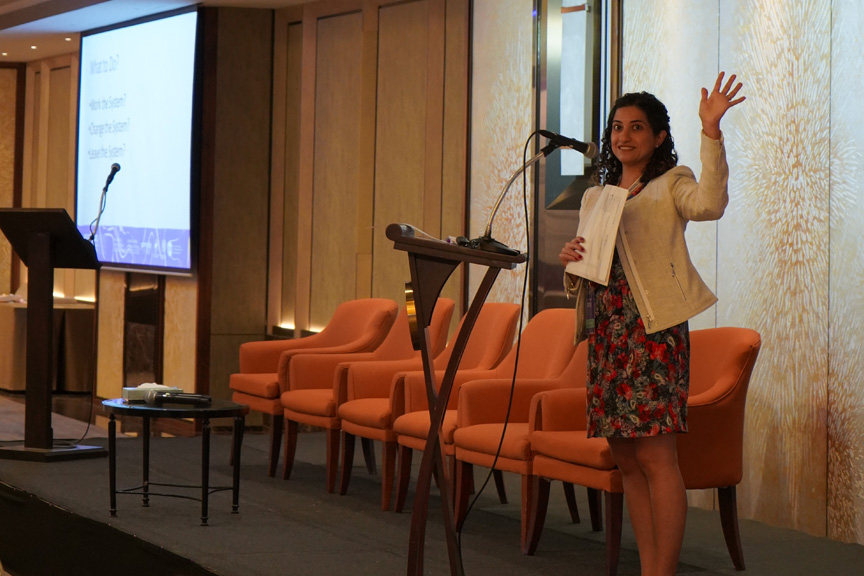
The idea for Beyond Despair, is rooted in both Barnett and Deloffre’s ongoing research on localization, a policy initiative to reform the global humanitarian system by empowering local communities and populations affected by disasters to lead humanitarian action. Professor Deloffre teaches a graduate level course on the topic, IAFF 6138 Localizing Humanitarian Action, which is offered in the spring. Barnett and Deloffre collected narrative data at the workshop and will share findings with meeting participants as well as in future publications.
The second half of the Beyond Despair conference featured a panel discussion on Survival Strategies, how national and local humanitarian groups innovate and partner effectively to provide humanitarian assistance. Panelists included: Juliet Parker, director of Active Learning Network for Accountability and Performance in Humanitarian Action (ALNAP), who discussed the positive news from the recent State of the Humanitarian System report; Smruti Patel, founder of GMI, who described local and regional certification schemes; Nannette Antequisa, Executive Director, Ecosystems Work for Essential Benefits (ECOWEB), Philippines, who detailed empowering partnership models; Takeshi Komino, Vice President of ADRRN, who discussed private-public partnership models, and Sudhanshu S. Singh, Founder and Director, Humanitarian Aid International, who highlighted his NGO’s survival strategies. Dr. Hanna A. Ruszczyk, Department of Geography, Durham University, served as the moderator.
Pakistan Flood Response Learning Series: Warranting Quality and Accountability
Community World Service Asia has launched a virtual learning series focusing on promoting quality and accountability (Q&A) and facilitate humanitarian organisations responding to the Pakistan Floods 2022 to discuss challenges, opportunities, and best practices as a group. This provides a platform to engage, interact and learn from each other and ensure a coordinated and principled response, guided by global Q&A standards.
Session 1: Using Core Humanitarian Standard (CHS) in Pakistan Flood Response 2022
The webinar aimed at introducing the CHS guidance in response to the floods, and revisit fundamental principles of CHS which are crucial to a successful, holistic intervention. “In the current flood response, Q&A is not being integrated widely and effectively in checklist for assessment, project design, and monitoring as per CHS/Sphere Standards and indicators to ensure that Q&A is implemented, thus leading to unstandardized aid,” highlighted Rizwan Iqbal, ACT Alliance.
Participants who are working directly with affected communities underlined the challenges that have emerged. Some of these issues include cases and reports of sexual harassment in camps, inadequate facilities for pregnant women, rampant spread of diseases including malaria, sudden cost increase of materials such as tents and mosquito nets, and coordination challenges owing to lack of internet connectivity in affected areas.
“The challenges that have emerged in the flood response cannot be resolved by one organisation on its own. It has curated a need for collaboration, coordination and cooperation among all humanitarian entities working there in addition to advocacy and capacity enhancement on Q&A standards,” emphasised Ayesha Hassan, Community World Service Asia (CWSA).
The second session focused on improving participants’ understanding on the Do No Harm and People-Centred Approaches in the current context and how the Humanitarian Charter, Code of Conduct and an effective Complaint Response Mechanism plays a role in ensuring accountability. Placing people and communities at the centre of all programming was flagged as most crucial to ensuring an accountable humanitarian assistance.
“It is the right time to mainstream the basics of Q&A in Pakistan flood response. Your common sense, knowledge of the context and connection with the community is key. This will build on those lessons, tools, frameworks and policies,” shared Sylvie Robert, Q&A expert and mentor.
Session 3: Applying Quality and Accountability in the Project Cycle to Build Back Better
To overcome the challenges that humanitarian workers face in implementing Q&A approaches, it was recommended that the aid community collaborate and coordinate with each other to improve quality and accountability in a humanitarian response. This session focused on how humanitarian organisations can adapt key Q&A initiatives and their tools to support project cycle management.
Participants shared challenges that they face while applying standards in previous and the current humanitarian response in Pakistan.
- There is a lack of awareness and limited capacity on new and even existing quality and accountability tools and techniques among the aid community and affected communities
- There is always a greater focus on providing quick and timely humanitarian response as opposed to prioritising the quality of the response and accountability to affected people
- There is still mistrust among stakeholders engaged in response at the local and grassroot level that doesn’t welcome standards and tools being imposed from regional and international actors. There is a need for more relationship and trust building among local, national and international responders
- There is a lack of coordination among NGOs and government in some districts key areas such as information sharing and assessments
- Inadequate action on Complaints Response Mechanisms and limited efforts to develop effective and joint CRM for each district to be used by all responding actors
These challenges were discussed and possible solutions were shared among participants. Sylvie Robert reiterated, “Quality and accountability starts from day one and it is not negotiable. There will always be challenges in its implementation but we must stick to these principles. It is a question of attitude and mind-set.”
Participants and speakers collectively agreed that while responding to an emergency could be challenging, integrating Q&A in the project cycle creates an opportunity in emergency response, paving a way for building a better future and prioritising disaster mitigation. An effective complaint and feedback mechanism was highlighted as a key to ensure consistent community engagement and information sharing.





